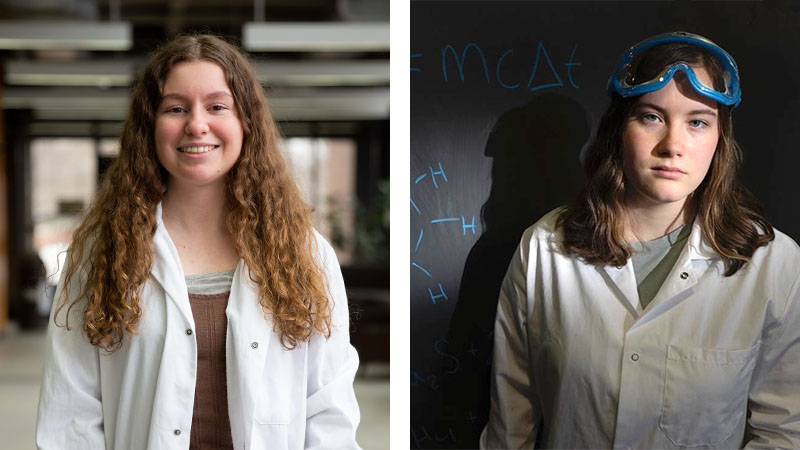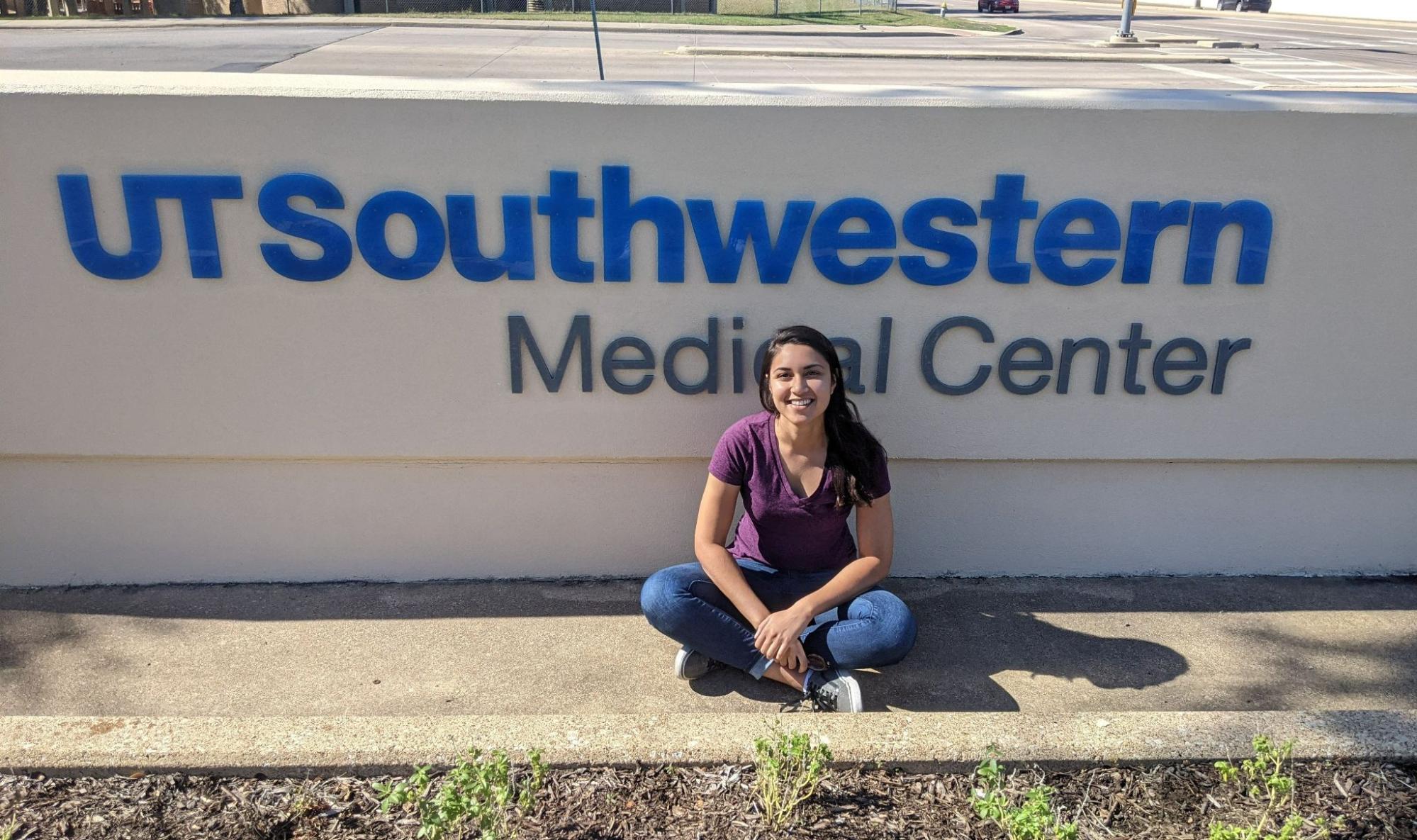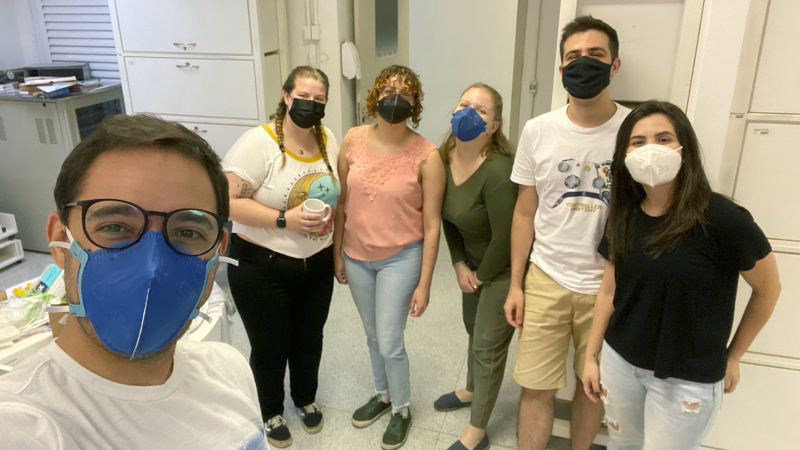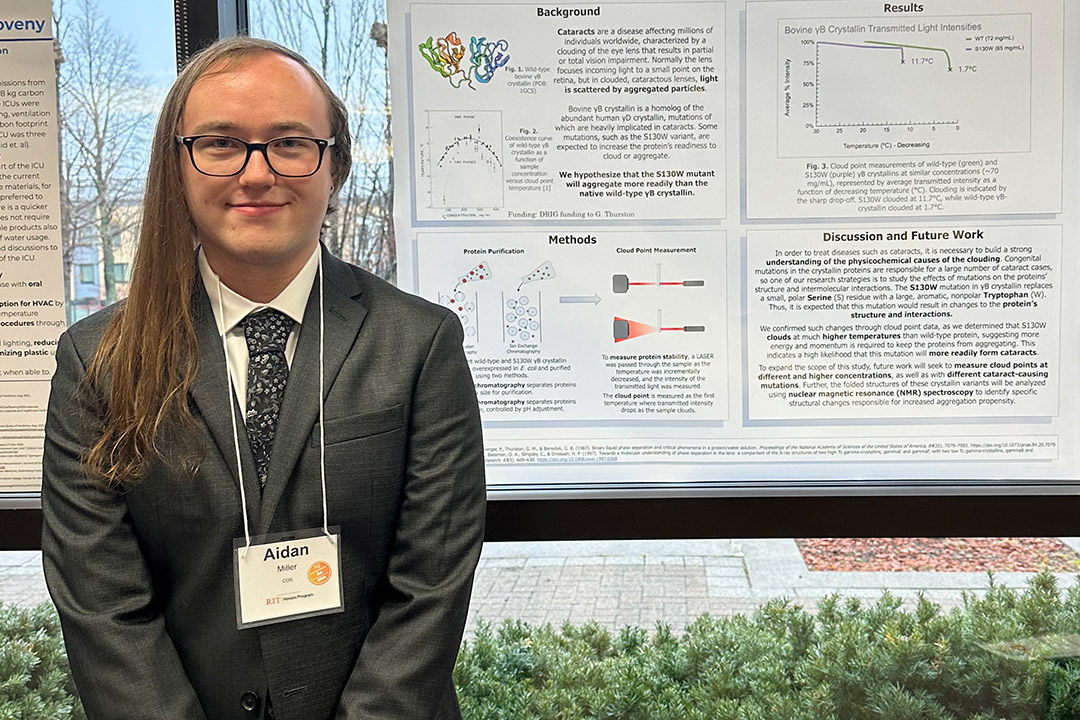RIT Undergraduate Students Receive Research Funding from Rochester Academy of Science
An essential part of the research process, two RIT undergraduate students, learn that the grant writing process is more of an art than a science.

Biotechnology and molecular bioscience students Emalee Wrightstone and Lexi Pyke study the role of the plant hormones ethylene and green leaf volatiles on the maize rhizosphere microbiome. Ethylene is commonly known for being a gas that makes fruit ripen. Green leaf volatiles are responsible for the scent of cut grass and are a warning signal for plants. In addition to being well-trained in their technical skills, these students learned that they also must be able to convincingly present the merits of their research project to earn grant funding. Something that is a bit more art than science.
Dr. Eli Borrego, assistant professor in the Thomas H. Gosnell School of Life Sciences, played a vital role in the grant-writing process by providing support and past experience to guide Lexi and Emalee towards success. They used a literature search to understand what had already been done and how their project could add to what is already known, helping to place their project in the scientific community's scope.
"A mostly hidden part of the scientific process is crafting many proposals that request financial support from different funding sources," said Dr. Borrego.
Third-year student, Lexi, and fourth-year student, Emalee, collaborated on the grant application to the Rochester Academy of Science. Lexi said this was her first time going through the grant-writing process.
"A few months ago, I had no idea what a grant was or how it is an essential part of the research process. I'm thankful I had this opportunity to learn about and write a research grant. I am excited to have the knowledge and skills to bring to my future scientific writing." - Lexi Pyke
Emalee was able to play a leadership role on the project since she had applied for grants before. “This grant-writing process presented me with the opportunity to apply my previous experience with grants in a leadership capacity. I was very excited when I learned they had accepted our full funding proposal," she said. The grant writing process allowed Emalee and Lexi to improve their grant-writing skills and get a taste for applying for external research funding.
Lexi and Emalee plan to use the funding towards the purchase of materials for DNA extractions and sequencing. Similar to the human gut microbiome, plants have to recruit and maintain their microbial communities. Plants establish and change their microbiome composition by altering the hormones they are producing and secreting into their soil environment. Their research will examine how changing the ethylene and green leaf volatile production in maize will influence its root microbiome. This fundamental research will shed light on future potential applications in the agricultural sector.
“This project is fundamentally novel since Emalee and Lexi are using corn as opposed to model plants and testing their hypotheses with genetic tools,” said Borrego. “No one has looked at the effect of green leaf volatiles (the scent of cut grass) on this type of system before.”
About the Rochester Academy of Science (RAS)
The Rochester Academy of Science is a non-profit organization dedicated to providing its members and the community with a means to study and learn about astronomy, anthropology, the life sciences, minerals, and fossils. The College of Science would like to thank RAS for providing opportunities for the next generation of scientists to gain this valuable experience.
About the Borrego Lab
The Borrego Lab strives to improve the understanding of the enigmatic group of fatty acid-derived signals, known as oxylipins, in plant biology and plant-interactions with microbes and insects.
“If you like our research and would like to help us train students that find innovative ways to solve the great challenges in food and agriculture, please consider making a gift to our lab,” said Borrego. Donations go entirely into the research program and directly support what the lab does.












